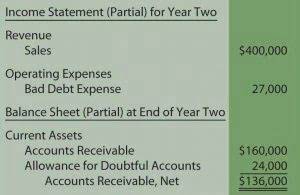
Suing HOA for negligence is one of the more common lawsuits an association can encounter. Generally, homeowners who want to make architectural changes to their homes have to submit an application to the HOA. If the change does not coincide with the association’s architectural standards, it will be denied. Disgruntled homeowners who receive such a denial may take legal action to challenge the board’s decision. They will use HOA money to pay for personal expenses or use it to pay for expensive dinners exclusively for the board. While the latter isn’t technically stealing, it is still considered a misuse of funds since it is not being used for the community’s best interest.

Reserve Studies
The collections process is generally not beneficial for either the homeowner or the HOA. The homeowner could endure damage to his or her credit report and a lien against the property. The association often gets less money than is owed and loses the trust and goodwill of the resident. All parties must understand the HOA management company’s responsibilities, so obligations don’t slip through the cracks. Frustrated homeowners could be left wondering who to contact with their questions.
Steps to Take if you Suspect Your HOA or Condo Board of Mismanaging Funds
You have a right to see all the bank statements, invoices, bids, contracts, checks, and the profit & loss statement. Community associations are required to keep the records for a specific amount of time, depending on the state. In most states condo and HOA members have a right to see all the financials of their association. This is the ultimate check and balance to prevent your board of directors from misusing association resources. Associations are like governments, and every government needs to have good citizens keeping an eye on those that control the money. I’m not trying to sow the seeds of discontent in your community association but rather put a practice into place where your money is accounted for.
Understanding Illinois Eviction Laws

If you find yourself in this situation, it’s important to know how to file a complaint against the HOA management company. Collecting as much information as possible when HOA or COA fraud is suspected is essential to prove fraudulent activity or mismanagement. Critical proof can be found in balance sheets, tax returns, financial statements, meeting minutes, and conversations with board members or managers. Whether it’s due to homeowners association embezzlement and fraud, or financial incompetence, you don’t want financial difficulties for your community. Financial problems not only hinder the board from managing the community but they can also lead to liabilities. If you want to avoid HOA money problems, here are warning signs that you need to look out for.
- An HOA can elect a treasurer to self-manage the association’s financial records, and he or she can prepare reports.
- You’re probably already paying into a reserve fund as a portion of your monthly homeowner’s fees.
- Add to that, bad press can also turn off new homebuyers and cause property values to drop.
- While you can handle some situations on your own, in many cases, hiring a property lawyer is in your best interest.
- This process can be error-prone and time-consuming if performed manually, but an integrated banking system could be the solution your company needs to simplify and optimize association accounting.
- Comprehensive accounting tools automatically reconcile accounts and create reports, and intuitive communication platforms facilitate more efficient and effective information sharing.
Once you have all of this information, you can calculate the probable costs for your budget. Should this request be ignored, you can then report your findings to the police department for further investigation. The job hoa accounting of the board of directors is to protect, maintain and enhance the association. A trustworthy management company can help a board run the association successfully, especially when navigating a situation like fraud.

Furthermore, HOA statements should be produced with as much clarity as possible. It should not take an advanced accounting degree to read an HOA’s financial statement. You can have one person in charge of making the deposits while another is in charge of reconciling bank statements. Another way to avoid check fraud is to require signatures from two members of the board. While this strategy may not be as efficient, especially when there are emergency situations, it helps prevent HOA fraud.
- If you are part of an in-house accounting subcommittee or hire a community management company, finances may be new terrain for you.
- Although it may seem like the latter option will save money, there are other factors to consider.
- Associations are like governments, and every government needs to have good citizens keeping an eye on those that control the money.
- Having just one person in charge of finances — whether it’s the treasurer or the manager — makes it very easy to commit fraud.
An HOA or management company gathers information in this database, which associations can use to maintain and expand membership, streamline monotonous tasks, and inform and engage members. Demand fees typically include unpaid fines for HOA violations, delinquent association dues, late payments, collection costs, interest, ownership transfer fees, and buyer move-in fees. If financial statements are incomplete or unclear, they can confuse association members and cause mistrust within the community and board members. Fannie Mae-backed loans require fidelity bonds with a maximum deductible of $25,000, and coverage equal to at least three months of regular maintenance costs.
How to Prevent HOA Fraud, Theft, & Embezzlement

Accurate bookkeeping and monthly financial statements will make it easier to make decisions for the HOA. When you work with a management company, you can also ensure the financial health of your association. The FHA requires three months of assessments; the reserve funds should also be covered.